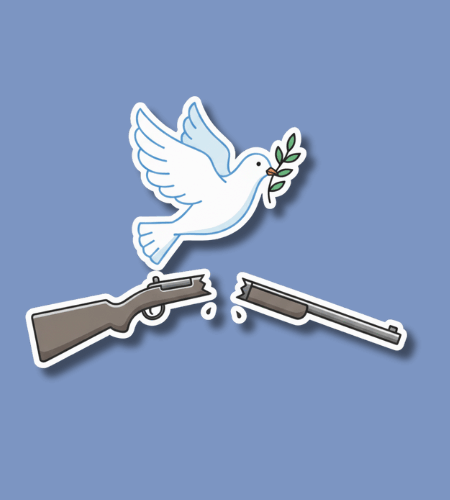Disarmament Week is observed annually from October 24 to October 30, a dedicated period for promoting awareness and understanding of disarmament, arms control and international peace and security.
Table of Contents
History of Disarmament Week
The observance of Disarmament Week began after the United Nations General Assembly adopted a resolution in 1978 marking the week starting 24 October — the anniversary of the founding of the UN — for disarmament education and action.
Over the years, the week has grown into a global platform for governments, civil society and educational institutions to engage on issues ranging from small arms and light weapons, conventional arms control, to weapons of mass destruction.
Why is Disarmament Week important?
In a world where advances in military technology, proliferation of arms, and rising defence expenditures pose serious risks, Disarmament Week invites us to reflect on how peaceful security can be achieved without reliance on weapons. It prompts questions about how we invest resources, protect communities and build trust rather than conflict.
The week also underscores the link between disarmament and sustainable development: when states divert huge sums for weapons rather than health, education or infrastructure, societies miss opportunities. Thus, the week encourages us to see disarmament not just as a tactical military choice but as a pathway to human security, development and shared wellbeing.
- It highlights how reduction of arms contributes to global peace and security
- It raises awareness of how weapons proliferation affects communities and future generations
- It encourages education and dialogue on how disarmament supports sustainable development
- It connects individual choices and policy with larger forces shaping peace or conflict
- It affirms that disarmament is as much a moral and humanitarian issue as it is a strategic one
How to Observe Disarmament Week
You can observe Disarmament Week in ways big or small: for instance, by organising or participating in a discussion or webinar on arms control, inviting diverse voices and perspectives. Or you might use the week to explore how local or national disarmament policy relates to global peace efforts and share that insight with your community.
Another practical approach is to engage educationally: choose a weapon category (for example, small arms, landmines or autonomous weapons) and research how disarmament efforts have progressed or stalled, then share what you learned with friends or in a social‑media post. This helps transform awareness into action and invites others into the conversation.
- Attend or host a talk or online event about disarmament and arms control
- Research and share a story of disarmament success or challenge in your country
- Discuss with someone how weapons spending and development priorities intersect
- Use social media to raise a question or story about disarmament you found interesting
- Encourage local schools or community groups to include a session on disarmament education
Disarmament Week Dates Table
| Year | Date | Day |
|---|---|---|
| 2026 | October 24 | Saturday |
| 2027 | October 24 | Sunday |
| 2028 | October 24 | Tuesday |
| 2029 | October 24 | Wednesday |
| 2030 | October 24 | Thursday |
Subscribe to our newsletter and never miss a holiday again!

